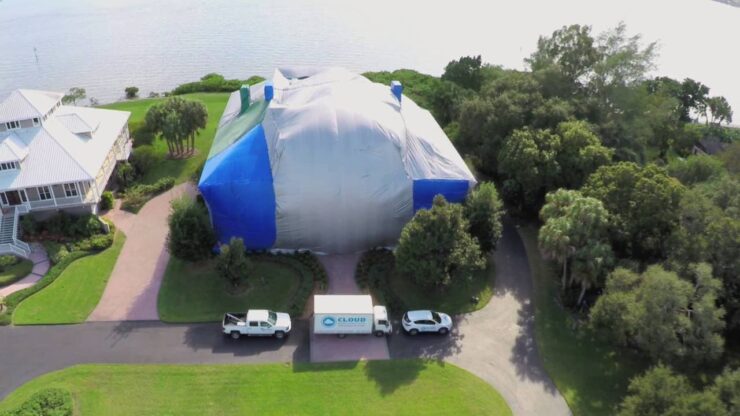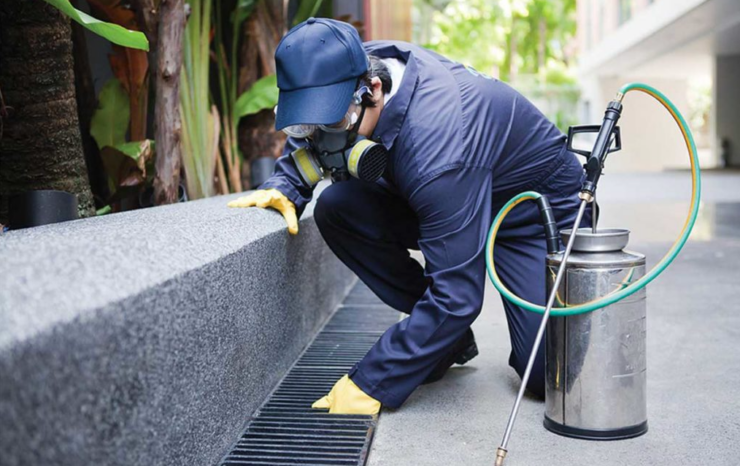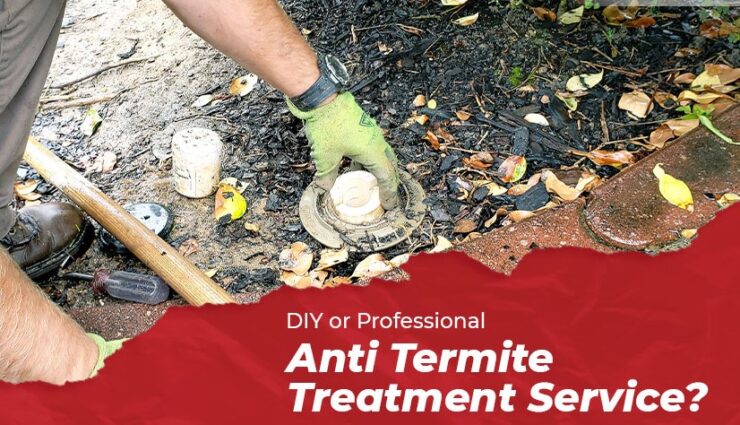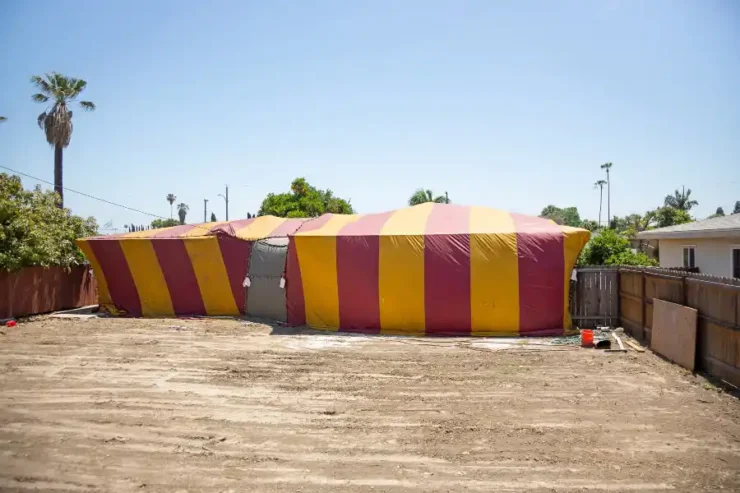Table of Contents
Termite infestations can cause significant damage to homes.
Choosing the right termite treatment method is crucial.
You cannot do that without consulting the professionals, right?
Today, we will help you with narrowing your options by paying attention to several factors.
1. Cost Considerations

The cost of termite treatments can vary significantly between DIY methods and professional services. DIY treatments often seem more affordable initially, with over-the-counter products typically ranging from $20 to $100.
However, these costs can quickly escalate if the infestation is not effectively controlled, leading to more extensive damage and higher repair costs.
In contrast, professional termite treatments generally have a higher upfront cost, often between $500 and $2,000, depending on the severity of the infestation and the size of the property.
While the initial investment in professional services may seem steep, it’s essential to consider the long-term financial implications.
Professional treatments are designed to be more effective and longer-lasting, potentially saving homeowners thousands of dollars in future repairs and additional treatments.
Failed DIY attempts can result in significant structural damage to a home, leading to repair costs that can easily exceed the initial savings from not hiring a professional.
Professional services often come with warranties and follow-up inspections, providing peace of mind and financial protection against future infestations.
Ultimately, while DIY methods might offer short-term savings, the comprehensive and long-lasting protection provided by professional termite treatments can be more cost-effective in the long run.
2. Effectiveness of Treatment

The effectiveness of termite treatments hinges on the type of chemicals used and the application techniques.
Over-the-counter termite control products available for DIY use often have lower concentrations of active ingredients compared to professional-grade termiticides. This lower potency can make DIY treatments less effective in eradicating a termite colony, particularly in severe infestations.
Professional termite control technicians have access to more potent chemicals and advanced application methods.
Techniques such as deep soil injection, high-pressure application, and termite tenting ensure that the termiticides penetrate deeply into the soil and reach the termites’ nesting sites.
These methods are typically beyond the capability of DIY treatments, which may only offer surface-level protection.
Professionals are trained to identify and target the specific species of termites infesting a property, allowing for more tailored and effective treatments.
They can also recognize signs of termite activity that may not be apparent to untrained individuals, ensuring that all potential problem areas are addressed.
DIY treatments are often limited by insufficient chemical concentration and improper application methods, leading to incomplete eradication and the potential for re-infestation.
In contrast, professional treatments are designed to provide comprehensive and lasting protection, significantly reducing the likelihood of future termite problems.
3. Knowledge and Expertise
Professional termite control technicians undergo extensive training to develop the skills and knowledge necessary to effectively manage termite infestations.
Expertise includes understanding termite behavior, identifying signs of infestation, and knowing which treatment methods and chemicals are most effective for different situations. Their training also covers the safe and proper use of termiticides and specialized equipment.
DIY termite treatments, on the other hand, rely heavily on the homeowner’s knowledge and ability to apply the products correctly.
Without professional training, it can be challenging to accurately assess the extent of an infestation and choose the appropriate treatment.
Common mistakes in DIY treatments include underestimating the size of the termite colony, misapplying chemicals, and failing to address all infested areas, leading to ineffective results.
There are numerous case studies and examples of DIY termite control failures, where homeowners have inadvertently allowed infestations to worsen due to a lack of expertise. These failures often result in significant damage and increased costs when professional help is eventually sought.
Hiring a professional ensures that the treatment is carried out correctly and efficiently, minimizing the risk of errors and maximizing the chances of successfully eradicating the termites.
Their expertise and experience provide a level of assurance that is difficult to achieve with DIY methods.
4. Equipment and Tools

Professional termite control services utilize specialized tools and equipment that are generally not available to the average homeowner. These tools, such as barrier rigs and advanced detection devices, are essential for accurately assessing the extent of an infestation and applying treatments effectively.
Barrier rigs, for instance, allow professionals to create chemical barriers around the foundation of a home, preventing termites from entering.
Detection tools, such as moisture meters and thermal imaging cameras, help locate hidden termite activity that might otherwise go unnoticed.
These sophisticated devices enable professionals to target treatments precisely and ensure that all affected areas are addressed.
In contrast, DIY termite control methods typically rely on basic tools and over-the-counter products, which may not be sufficient for thorough treatment.
The lack of specialized equipment can limit the effectiveness of DIY treatments, making it difficult to reach deep-seated termite nests or treat large infestations comprehensively.
Proper equipment is crucial for effective termite eradication, as it ensures that termiticides are applied in the right locations and at the correct concentrations. Without these tools, DIY treatments are often less precise and less effective, increasing the likelihood of re-infestation and further damage.
Professional services, with their access to advanced tools and equipment, offer a level of precision and thoroughness that DIY methods cannot match, providing more reliable and long-lasting protection against termites.
5. Customized Treatment Plans
One of the significant advantages of professional termite control services is the ability to provide customized treatment plans tailored to the specific needs of a property.
Professionals begin with a thorough inspection to identify the type of termites, the extent of the infestation, and any unique structural or environmental factors that might affect treatment.
Based on this assessment, they develop a targeted strategy that addresses all aspects of the infestation. This customized approach ensures that the treatment is effective and minimizes the risk of re-infestation. Professionals can also adjust their methods as needed, based on the ongoing results and any new signs of termite activity.
DIY treatments, however, often follow a one-size-fits-all approach, using general products and methods that may not be suitable for every situation. This lack of customization can lead to inadequate treatment and persistent termite problems.
DIY solutions typically do not involve the detailed inspections and tailored strategies that professional services provide, making them less effective overall.
The importance of a thorough inspection and personalized treatment plan cannot be overstated. Each termite infestation is unique, and a tailored approach is essential for complete eradication.
Professional services offer the expertise and flexibility needed to develop and implement these customized plans, ensuring that every aspect of the infestation is addressed.
The Bottom Line

Choosing professional termite treatment over DIY methods ensures cost-effectiveness, effectiveness, expertise, proper equipment, customization, long-term results, and safety. For optimal termite control, consult a professional pest control service.

